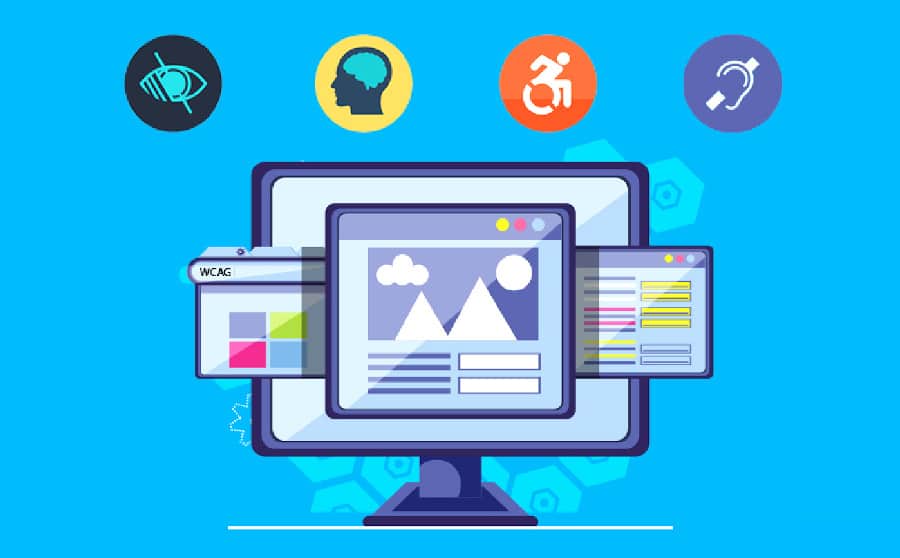Discussing the potential benefits of Artificial intelligence
Artificial Intelligence comes with inherent risks, ranging from privacy concerns to job displacement and ethical dilemmas.

Artificial Intelligence (AI) has emerged as a transformative force across multiple industries, reshaping the way businesses operate and how society functions.
While AI offers numerous advantages, it also presents a range of potential risks and challenges.
In this blog post, we will delve into the potential risks and benefits of AI across various industries, shedding light on the complex landscape of this rapidly evolving technology.
Benefits from Artificial Intelligence in Various Industries
Healthcare Industry:
AI has made significant strides in healthcare, aiding in diagnosis, treatment, and patient care. Some benefits include:
- Early Diagnosis: AI algorithms can analyze medical images and detect diseases like cancer, often at an earlier stage than human experts, increasing the chances of successful treatment.
- Personalized Medicine: AI can analyze genetic data and patient records to tailor treatment plans, maximizing effectiveness and minimizing side effects.
- Administrative Efficiency: AI-powered systems can streamline administrative tasks, reducing paperwork and improving the overall efficiency of healthcare organizations.
Finance and Banking:
AI has revolutionized the finance sector, offering:
- Fraud Detection: AI algorithms can detect fraudulent transactions in real-time, saving billions of dollars for banks and consumers.
- Algorithmic Trading: AI-driven trading systems can analyze vast datasets and execute trades at speeds impossible for humans, optimizing investment strategies.
- Customer Service: Chatbots and virtual assistants enhance customer service by providing quick and accurate responses to inquiries.
Manufacturing:
In manufacturing, AI is transforming:
- Quality Control: AI-powered vision systems can detect defects in products, ensuring higher quality and reducing waste.
- Predictive Maintenance: AI algorithms can predict when machinery is likely to fail, enabling proactive maintenance and minimizing downtime.
- Supply Chain Optimization: AI helps optimize supply chains by predicting demand patterns, improving inventory management, and reducing costs.
Retail:
Retailers benefit from AI through:
- Personalized Shopping: AI analyzes customer behavior to recommend products tailored to individual preferences, increasing sales and customer satisfaction.
- Inventory Management: AI optimizes inventory levels, reducing stockouts and excess inventory costs.
- Dynamic Pricing: AI algorithms can adjust pricing in real-time based on market conditions, maximizing profits.
Education:
AI's impact on education includes:
- Personalized Learning: AI-powered systems adapt to students' abilities and learning styles, providing customized educational experiences.
- Administrative Efficiency: AI automates administrative tasks like grading, freeing educators to focus on teaching.
- Accessibility: AI-driven tools can assist students with disabilities, making education more inclusive.
Potential Risks of Artificial Intelligence n Various Industries
Privacy Concerns:
- Healthcare: AI systems may access and process sensitive medical data, raising concerns about patient privacy and data security.
- Finance: The use of AI in credit scoring and financial analysis may lead to the misuse of personal financial information.
- Retail: AI-powered surveillance and customer tracking systems raise questions about consumer privacy.
Job Displacement:
- Manufacturing: As AI and automation technologies advance, there is a risk of job displacement for factory workers.
- Customer Service: AI-powered chatbots and virtual assistants may reduce the need for human customer service agents.
- Transportation: The rise of autonomous vehicles could threaten jobs in the transportation sector.
Bias and Fairness:
- Healthcare: AI algorithms may exhibit bias in diagnosis or treatment recommendations, leading to unequal healthcare outcomes.
- Finance: Biased algorithms in lending may disproportionately affect marginalized communities, exacerbating socioeconomic disparities.
- Criminal Justice: Predictive policing algorithms can reinforce existing biases in law enforcement.
Safety and Security:
- Transportation: Autonomous vehicles must be rigorously tested to ensure they are safe for public use.
- Cybersecurity: The increased use of AI in cybersecurity also introduces new vulnerabilities and risks if AI systems are compromised.
- Military: The use of AI in military applications, such as autonomous weapons, raises ethical and security concerns.
Ethical Considerations:
- Education: The use of AI in education may raise ethical questions about student surveillance and the depersonalization of learning.
- Finance: High-frequency trading algorithms can raise ethical concerns about market manipulation.
- Criminal Justice: The use of AI in sentencing and parole decisions requires careful consideration of fairness and transparency.
Artificial Intelligence holds immense potential to transform a wide range of industries, offering benefits such as improved healthcare, enhanced financial services, increased manufacturing efficiency, personalized retail experiences, and innovative educational tools.
However, these benefits are accompanied by potential risks, including privacy concerns, job displacement, bias and fairness issues, safety and security challenges, and ethical considerations.
As we continue to integrate AI into our daily lives, it is crucial to strike a balance between harnessing the advantages it offers and mitigating the risks it poses.
Responsible AI development, robust regulations, and ongoing ethical discussions are essential to ensure that AI benefits society as a whole, rather than exacerbating existing inequalities and vulnerabilities.
By navigating these challenges wisely, we can unlock the full potential of AI while minimizing its negative consequences.
What's Your Reaction?
















